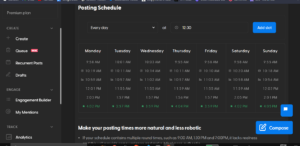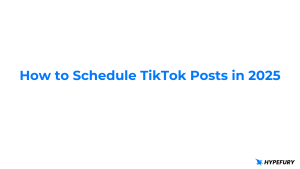Everyone talks about it, but what exactly is mental health?
Mental health and self care have become buzzwords online and off. But what exactly do we mean when we say that you should take care of your mental health?
Our culture is more familiar with the idea that we should all take care of our bodies – after all, our bodies are very obvious to us, they carry us around every day and we feel them more and more as we age!
On the other hand, the idea that we should also look after how we feel inside and how we think isn’t as accepted. It remains somewhat taboo to talk about feeling down, overwhelmed by work or anxious about the future or the state of the world. There remains a preconceived idea that if you’re feeling low, it’s probably your fault and you should innately know how to handle it and certainly never, ever share that burden with anyone else – we all have our share of worries already.
This stigma, like all stigmas, ends up perpetuating unnecessary suffering and itself: if no one ever opens up about their feelings, no one can get encouraged to do so, and the cycle continues!
Taking care of your mental health is crucial because it is so easy to neglect it. Although society is growing more aware of it, it remains difficult to get vulnerable in a world where doing so is seen as weak and always bad instead of simply human.
Why is it important to take care of our mental health?
Looking after yourself can only benefit you – and those around you.
By making sure you feel good inside and out, you’ll be your best self: happier, more present, more confident and more enthusiastic about the future and your dreams. Once you can manage your anxiety and your other issues, you will be more grounded and more ready to face the world!
This means that, as a consequence, you’ll also be your best entrepreneur or brand! Your work will benefit from you being at peace and more resilient to challenges, and you will enjoy it more. Inevitably, your clients will sense your wellbeing too – and you may even make them feel good, as well!
How can social media hurt your mental health?
With the boom of social media over the last decade, we’ve seen how much space these various platforms have started to take in our lives. It’s no wonder! They allow us to be better connected to each other, they offer up all the world’s knowledge at our fingertips, and can even help us in our work. Social media in itself isn’t bad!
But with any advance in technology come some risks and negative side effects.
Here are some of the not-so-good effects of social media on your health:
Staring at screens has been proven to be bad for you
Humans were simply not designed to look at one fixed, bright object at a consistent eye distance for long periods of time! Over time, staring at your laptop or your smartphone isn’t good for your physical health, impacting your eyesight, your posture and even your ability to be in the present moment. The mind and the body are connected, so any damage done to your body can have a negative effect on your mood. It’s no fun to feel one’s vision get blurry over the years or one’s back start to ache.
Social media is designed to be addictive
The instant gratification that social media provides does tricks on our brains! Where else in your life can you get approval from countless people in just a few seconds from your own phone? The sense of pleasure and the ego boost that a Twitter like or an Instagram response provide are just too good to resist, and these platforms know it. They’re made to keep you logged in for as long as possible, pushing you to continue posting and interacting with their appealing colors and animated images. After all, they need to make money!
Social media encourages social comparison
While it’s great to be able to see what your cousin living in another country is up to everyday, being always aware of what other people are doing can make you wonder if your life is as fun as theirs. We’re not meant to be always confronted with updates about the most minute details of other people’s lives, and if you happen to see a picture of the gorgeous brunch that a celebrity is having in Los Angeles while you’re in your pajamas at 11 am procrastinating before going to work at your job that you don’t really like, it’s easy to fall into despair at what you’re doing wrong with your life. Even if we know better, it’s hard not to compare ourselves to others.
Social media is highly curated and creates unreachable standards
That brunch picture I just mentioned? The meal may have been great, but it perhaps didn’t look nearly as appetizing in reality as it did in the celebrity’s picture. Using filters on Instagram has become the norm, and some influencers go even further in order to present an idealized image of their lifestyle. From changing their body shapes (very bad for anyone with body dysmorphia) to removing people from their post’s backgrounds, many social media users only present an altered version of their lives that inevitably looks way sexier than your normal, unfiltered reality. You can quickly start to feel inferior to these manufactured pictures.
FOMO
Comparison tends to lead to feelings of inferiority, but it can also make you feel that you are never at the right place at the right time. A friend posts a tweet about the amazing party they went to over the weekend and shares funny anecdotes about the great people they met there, and even though your own weekend was lovely, you can start to feel like you missed out on a special opportunity. It can be hard to stay focused on your own life and choices when it seems that the grass is always greener elsewhere.
Cyber bullying
Sharing your thoughts online means sharing them with a bunch of strangers. Thanks to the platforms’ security policies, bullying and inappropriate behavior are strongly discouraged, but it doesn’t mean they never happen. People unfortunately aren’t always nice and being harassed online can feel particularly isolating and helpless.
Echo chambers and division
The point of algorithms is technically to guarantee you as pleasant an experience online as possible. What they often end up doing, however, is create echo chambers in which one opinion is shared by everyone. Sounds good in theory (and sometimes in practice), but it also means that if you’re not in the group, you’re outside of it. Different communities can clash and dialogue is not encouraged. Outrage can quickly become the main currency online, which can be invigorating at times but also draining and, frankly, depressing.
Doom scrolling
As we’ve said, social media is highly addictive. What can be a little more surprising is that it remains addictive even when what it feeds us is truly depressing news. We’ve all experienced it during the pandemic: you start looking at one thread about vaccines, and two hours later, you’re still scrolling to read different takes on what the world is going through, desperate for a clear answer. Panic keeps people engaged, but giving in to it isn’t helpful for your brain.
What can you do to protect your mental health?
Taking into account all these side effects doesn’t mean that you should completely give up on social media forever. As we’ve explained, the benefits are there: increased connection across continents, speed of exchanges, discovery, community building… There are countless advantages to being online, some of which even end up benefiting your mental health!
For instance, finding people who share your interests online can dramatically help you in feeling validated in your preferences – especially if you grew up in a community where no one else understood your passions or even judged you for it!
So how can you make sure that the benefits outweigh the harm to your mental health? Here are some tips:
Don’t make social media just a habit, be intentional with it
It’s too easy to rely on social media for entertainment throughout the day. The second you’re not busy working, you can just take out your phone and start scrolling – but this isn’t good for you. Most of the content you will find that way won’t serve you, and you’ll end up regretting wasting time like this!
Instead, try to be intentional with your social media use. Impose some limits on yourself, for instance, choose not to log in while you’re at work, but only during your coffee break or lunch break. If you need social media for work, try to still have a plan: set an alarm every hour, telling you when you can log in for just a few minutes to check how things are going on Twitter or whatever platform you need.
Use tactics to resist the addiction
Simply wanting to spend less time on social media is not likely to do much for you: as we said, this stuff is addictive! But there are strategies you can easily put in place to help you. Start by putting your phone away from you, whether that means in a cupboard or another room. It’ll be way easier to resist the temptation! You can also turn off notifications on all your social media apps, so that your phone will stop pinging to get your attention all day. And if worst comes to worst, simply switch off your device. Radical, but effective!
See social media as a tool, rather than as your sole source of fun
Depending on your age, you may or may not remember a time before the internet, when people would find entertainment in things like books, TV (that still exists), or simply talking to someone or staring out the window, daydreaming in silence. Granted, that may sound a little boring. But nowadays, you have countless options to keep you entertained that are not social media. A huge chunk of the whole history of cinema is available for you to watch online at any time. The same is true for music: why not put on a record you’ve always wanted to listen to but haven’t yet? Social media is your friend, but not your only friend!
Optimize your time with tools that allow for cross-posting
Social media is a powerful tool, whether for your personal brand or your business, and it would be foolish to both give up on it, or let it turn into a nuisance for your mind! Luckily, there are plenty of tools out there for you to optimize the time you do spend on social media, so that it doesn’t become an addictive and time-sucking part of your life. If you’re doing social media marketing right, you’re probably posting content across several platforms already. Why not use a tool like Hypefury to help you manage all your platforms in one place, and cross-share your posts everywhere in one click? For instance, you can turn your Twitter threads into an elegant Instagram carousel, which means less time spent near the temptations of other people’s sexy brunch pictures.
Plan your week with scheduling tools so you can log off
Hypefury can also help you stay focused on your wellbeing more smartly by planning your posts ahead of time! Instead of having to log on every day to make sure your content stream is consistent, thus exposing yourself to Twitter disputes going nowhere or ultra-edited influencer posts making you feel bad about yourself, you can take a few hours of one day to carefully schedule what and when you’ll be posting about your brand and offer. This approach also keeps you safe from the influence of others online: your voice can remain consistent and true to you which, in itself, is great for your mental health!
Conclusion
Taking care of our mental health when using social media has become a true necessity. As helpful and fun as these platforms can be, they can turn against us if we don’t approach them carefully. Thanks to tools like Hypefury, you can make your relationship to social media healthy again, which will also help you boost your brand and make your followers all the more interested in hearing from you!






